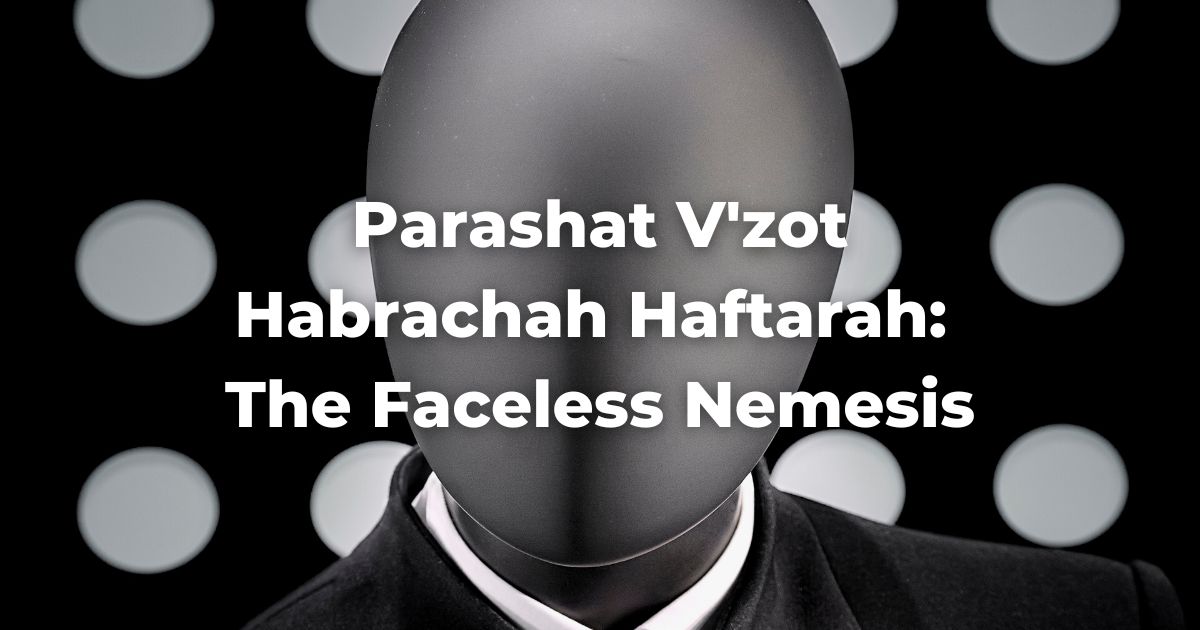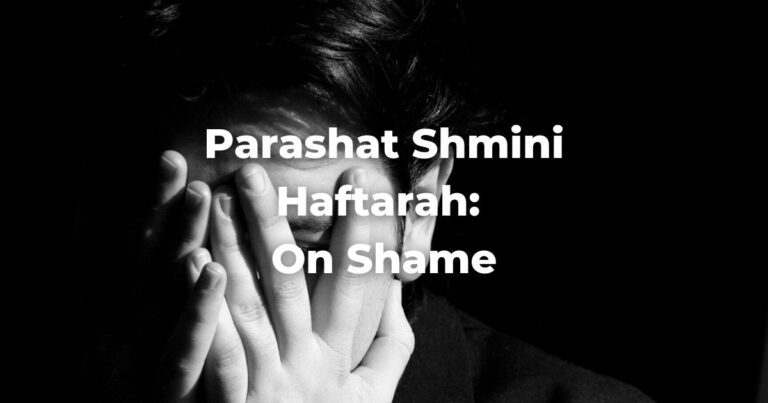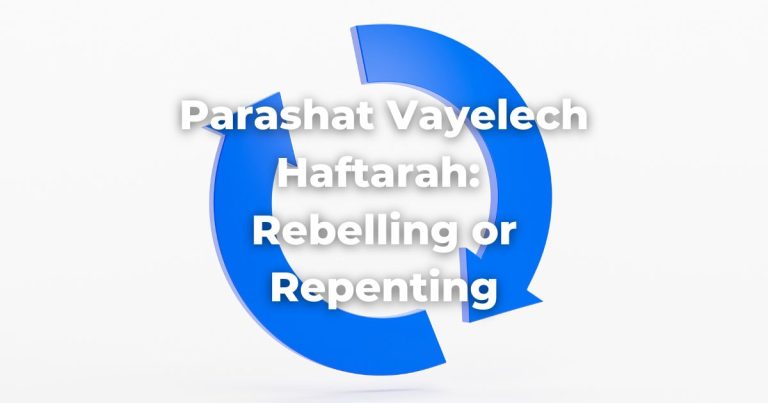Having just experienced the most intimate time of the year, the holiday in which we reflect on our actions as individuals, we find ourselves now in Sukkot.
Transitioning from Yom Kippur to Sukkot
Gone are the quiet moments and awareness of death that characterize Yom Kippur. Instead, we find ourselves in a pilgrimage festival, a coming together of all of Israel, in celebration of life, both in the natural world via the harvest and also in our historical memory of the exodus from Egypt.
The haftarah does have some connections to this time of year.
We read about a gathering together in the verse right after this portion, just as this festival is chag haAsif, the festival of ingathering. We read, as translated by Robert Alter, “Say to the birds, every winged thing, and to all the beasts of the field—Gather and come, assemble from all around for My sacrificial feast that I am about to sacrifice for you, a great sacrificial feast on the mountains of Israel. And you shall eat flesh and drink blood.”
But rather than a great celebratory feast like Sukkot, this feast has been turned on its head. Here, it is animals consuming the corpses of people.
End-Of-Times Faceless Nemesis
This is only appropriate because of the end-of-times nature of our haftarah.
The story told in our haftarah is the story of Gog. In this story, Israel has already been exiled to Babylon and then returned back to Israel. Gog rises up after we have returned to threaten us but, in an ultimate battle, we defeat Gog.
From the haftarah, we do not know much about Gog. He is from a place called Magog, which was referenced as one of Noah’s grandsons back in the table of nations in Genesis. Neither Gog nor Magog appear explicitly anywhere else in the TanakhAn acronym for the name of the Hebrew Bible: Torah, Neviim, and Ketuvim. Read more. There is no definitive answer as to who Gog is. We have a faceless, storyless nemesis.
Over the centuries, there have been many attempts to give a face and a story to this nemesis.
Rashi conflates Gog with Christianity. The Septuagint identifies Gog with Agag, an Amelekite king and ancestor of Haman. The Quran suggests that Gog is Alexander the Great. Ronald Reagan identified Gog as the USSR; George W. Bush identified Gog as Iraq.
The text of the haftarah itself assumes that we know who Gog is.
We read God’s question to Gog in Ezekiel 38:17, “Are you the one of whom I spoke in former days through My servants, the prophets of Israel who were prophesying in those days for years, to bring you upon them?”
The implication here is that God had spoken of Gog earlier, letting Israel know that Gog was coming. Indeed, there had been many prophecies before this point of the end of days. But this is the first time Gog is mentioned. What before had been existential dread has been given a name, if not a story. In order for us to get to the point where the nemesis can be defeated, the nemesis has to be humanized, given a name.
But we do not need to know enough about Gog to learn to love him, to pity him, to see him as anything more than a functionary of God.
The attempts to give Gog a story make sense.
We have just finished telling our own personal stories and are embarking on the retelling of our national story.
But the haftarah of Gog cautions us against trying to understand and empathize with something truly dangerous to us. After all, the point of Gog is to glorify God. We find in the haftarah the words which will be picked up in the kaddish, “And I will be magnified and hallowed,” v’hitgaddilti v’hitkaddishti.
God’s name will be made great. Gog’s name is irrelevant.
See more: Parashat V’zot Habrachah
Originally posted as part of the Conservative Yeshiva at the Fuchsberg Jerusalem Center’s Torah Sparks. Support TorahRefers to the first five books of the Hebrew Bible, the Tanakh, also called the Five Books of Moses, Pentateuch or the Hebrew equivalent, Humash. This is also called the Written Torah. The term may also refer to teachings that expound on Jewish tradition. Read more learning from the Fuchsberg Jerusalem Center/Conservative Yeshiva for leaders and seekers around the world here.
Authors
-

Bex Stern Rosenblatt is the Conservative Yeshiva’s Faculty-in-Residence for the Mid-Atlantic Region of the United States, teaching Tanach, using the techniques of close-reading, theater, feminist readings, and traditional commentators. Bex also directs the CY’s recruitment efforts in North America. After finishing her B.A. in History and German at Williams College, Bex received a Fulbright Grant to Austria. She later earned an M.A. in Tanakh from Bar Ilan University and has also studied at the Conservative Yeshiva and Bina Jerusalem. Bex is the founder of HavrutaA study partner. A hevruta is more than just a ‘study buddy’ it is a serious and personal relationship between colleagues. Also spelled: Havruta Read more Tel Aviv, an organization that facilitates guided pair-learning of the Tanakh.
View all posts -



The Fuchsberg Jerusalem Center (FJC) is a home in the heart of Jerusalem where leaders and seekers can find an authentic place in Jewish tradition to call their own. FJC offers opportunities to study, pray and explore within an egalitarian and inclusive setting, creating multiple pathways for finding personal and communal meaning.
View all posts






